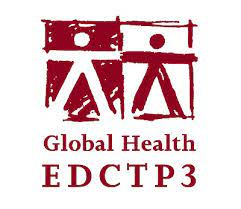Acronym
NeuroSolve
Code
41C00123
Duration
01 May 2023 → 30 April 2027
Funding
European funding: various
Promotor


Research disciplines
-
Medical and health sciences
- Microbial diagnostics
- Neurological and neuromuscular diseases
- Tropical medicine
- Epidemiology
- Mental healthcare services
- Parasitology
-
Agricultural and food sciences
- Veterinary public health and food safety
Keywords
neurocysticercosis
treatment
patient management
diagnosis
control
implementation
one health
Project description
Neurocysticercosis (NCC) is a fatal zoonotic disease following ingestion of eggs of the pork tapeworm, Taenia solium. Theeggs develop to larval forms (cysticerci) in various tissues, including those of the central nervous system, leading to neurocysticercosis (NCC), characterised mainly by epileptic seizures. Various efforts have been made globally in support for cysticercosis/taeniasis control, including publication of a guideline on its management by the World Health Organisation (WHO). Countries are urged to adapt the guidelines to their local contexts and carry out further research on open questions such as appropriate treatment regimens and the role of serology in NCC management. Currently, there is paucity of information on how such guidelines have been adopted into a country’s health systems and/or policies in Sub-Saharan African (SSA) countries, including potential factors that influence adoption. The overall aim of NeuroSolve is to validate and demonstrate a methodological approach to implement research results into real- world clinical practise.Specifically, the consortium will focus on evaluation and subsequent implementation of two health technologies - an antiparasitic combination treatment and a serological test- that can make a major positive contribution to NCCmanagement-. Our approach includes (1) strengthening of clinical and research capacity related to NCC through training and mentoring of early-career researchers, clinicians and frontline healthcare workers as well as upgrading infrastructure relevant for NCC surveillance and control, (2) demonstrating the improved pragmatic effectiveness of the combined treatment on Quality of Life (QoL) for NCC patients (3) evaluating the potential impact of adopting serological testing on the patient outcomes and health systems through a simulation study, (4) demonstrating the cost-effectiveness and cost-benefit of the proposed health technologies, (5) developing and validating an implementation strategy (including implementation tools) that addresses identified barriers for uptake using the robust implementation frameworks. Moreover, a One Health implementation strategy for the implementation of T. solium control in Tanzania and Zambia will be explored building on the planned implementation sciences activities and tasks by adding tasks identifying barriers and facilitators for control using intervention tools targeting the human host and on the veterinary public health level intervention tools targeting the pig host. Finally, the projectwill (6) enhance research results uptake into national and international guidelines and health policy through engagement ofrelevant policy makers throughout the project period and beyond. Through NeuroSolve, NCC patients will benefit from improved tools for diagnosis and (thereby) access to improved NCC specific treatment. This will improve QoL for patientsand reduce the NCC burden on SSA healthcare systems. For researchers, NeuroSolve provides a blueprint for performingimpact-driven, clinical and implementation research. To policy makers, the project is a real-world demonstrator on how research projects can be critical agents for improving clinical practise, strengthening healthcare systems and build resilience against potential future health crisis.